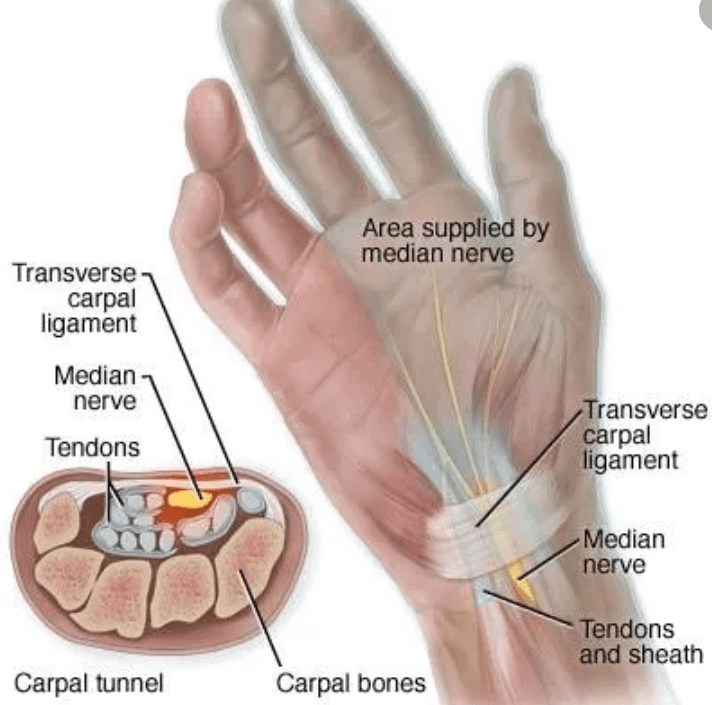Carpal tunnel syndrome (CTS) is a common ailment that results in pain, numbness, tingling and weakness in the fingers of the hand or palm. These symptoms are often worse while sleeping or with repetitive activities and can affect one or both hands.
CTS occurs when the median nerve, one of the major nerves in the arm, is compressed as it travels through the carpal tunnel. This nerve can be compressed by the transcarpal ligament, flexor tendons in the wrist, from masses in the wrist, or from trauma(see image below). CTS affects more than 12 million people nationwide and will affect ~10% of the population at some point in their lives.
How is CTS diagnosed?
CTS is diagnosed through the patient’s clinical symptoms, through physical exam maneuvers and through diagnostic tests like nerve conduction studies, electromyography or through musculoskeletal ultrasound.
How do I know how severe my CTS is?
This is often done through nerve conduction studies that measure how fast electrical impulses travel down the median nerve.
By placing electrodes on the wrist and fingers and sending impulses along the nerves, the physician conducting the test can measure how fast the impulses are able to travel down the median nerve vs other nerves in the hand or wrist.
Peripheral nerves have several jobs, including sending sensory information to the brain, sending movement information to the limbs and innervating muscles. If a nerve is severely damaged it will cause the muscles that it innervates to lose their strength, in addition to disrupting sensory and movement information.
Generally speaking, if a nerve conduction study shows that sensory information sent through the median nerve is delayed, but motor signals and strength are preserved, then carpal tunnel syndrome is classified as “mild.”
On the other hand, if a nerve conduction study shows that the sensory and motor information is slowed, but the strength is preserved then the CTS is classified as moderate. Consequently, if there is damage to the muscles that the nerve innervates as well as damage to sensory and motor information the CTS is then rated as severe.




